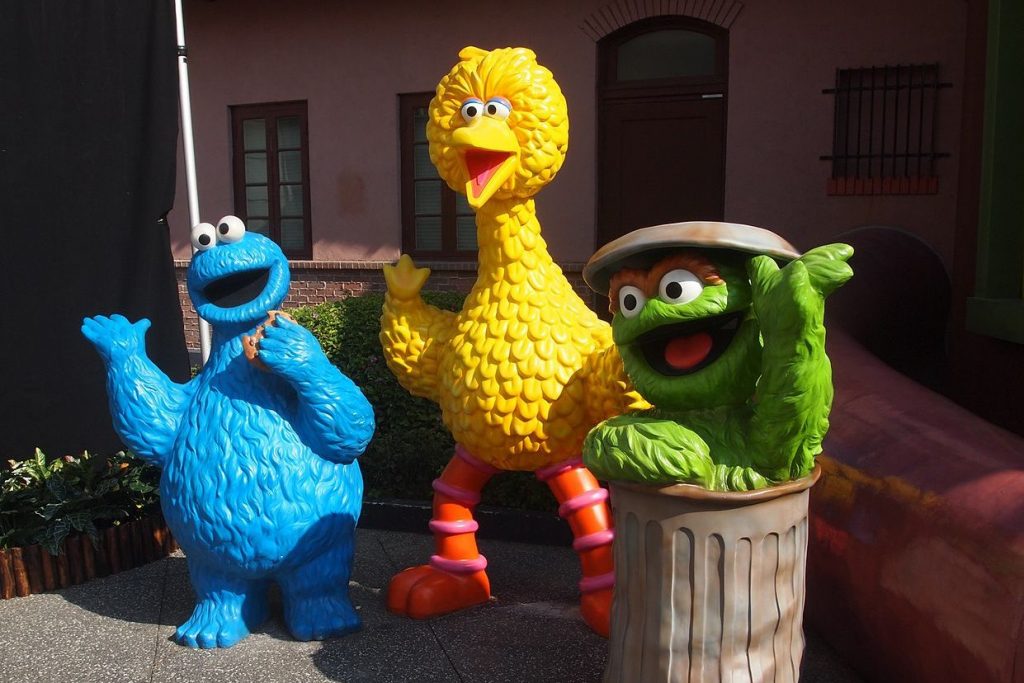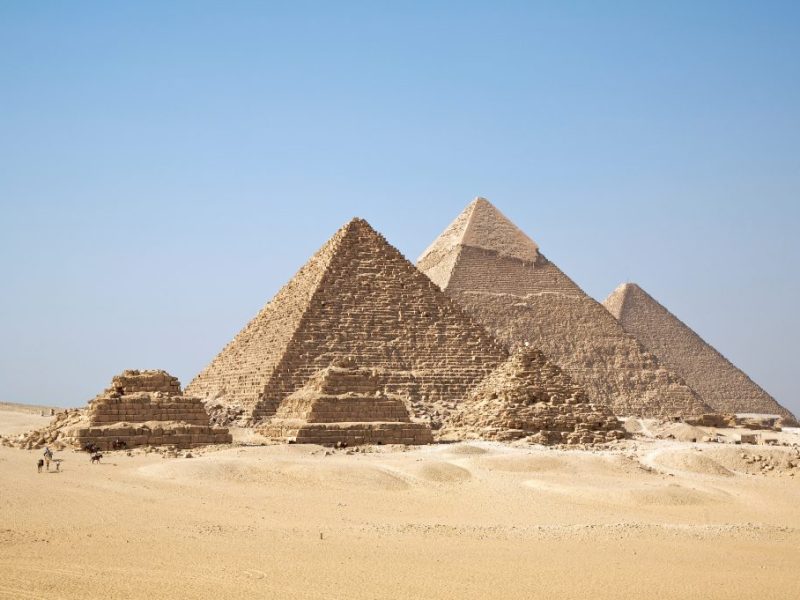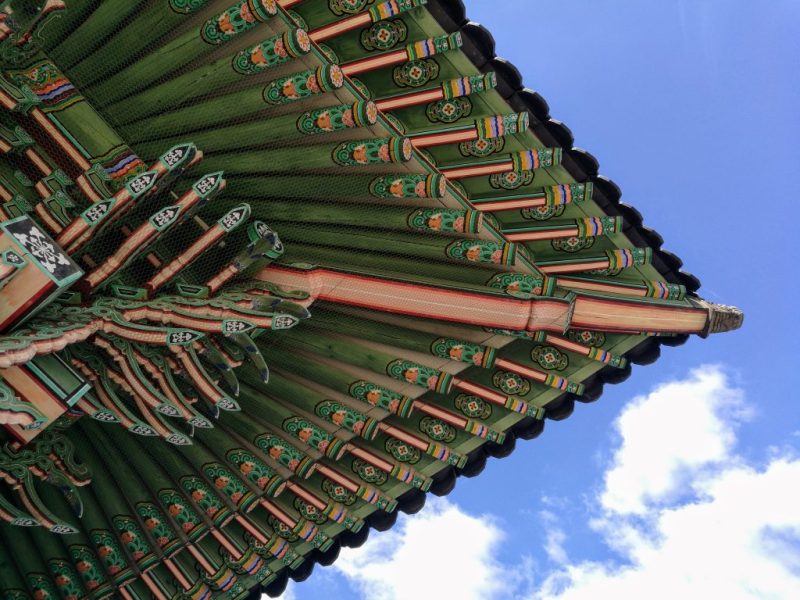Have you ever visited a Wikipedia page and found it so deeply engaging that you first read through every word, and then found yourself going deeper and deeper into the original source material? That’s the way I felt recently when I came across the history of Sesame Street. The article describes how the early children’s program has changed and adapted over the past five decades, and contains wonderfully vivid details about the show’s earliest days. After reading the piece, I checked out several related books from my public library, which I found in the comprehensive references section.
I wanted to learn more about the person who devoted so much time to researching Sesame Street’s earliest days, and reached out to Christine Meyer, better known on Wikipedia as User:FigureSkatingFan. Christine has worked on many of the articles related to Sesame Street, including the flagship article as well as pieces related to international co-productions and how Sesame Street conducts research.
Christine has been editing Wikipedia for a decade. In that time, she has made over 27,000 edits on the site and contributed to 23 featured articles and lists, as well as two featured topics—where “featured” is an indicator of high quality. Her interests span from children’s programming to American poet, memoirist, and civil rights activist Maya Angelou to the GA Cup, an annual contest focusing solely on good articles (another quality ranking). We chatted over email about how she researches the articles she works on, and what she plans to tackle next.
———
Hi Christine, how did you initially become interested in editing? Do you remember your first edit?
Christine Meyer: My first edit on Wikipedia was made on 3 February 2007. I saw the tagline on the main page—the free encyclopedia that anyone can edit—and actually believed it, so I clicked on the link and set up an account, because I usually do what I’m told. My first real edits consisted of correcting typos, then I moved to checking sources, discovered that it was fun, and then moved into the trenches of editing–research, writing, and collaborating with others. I found that I really enjoyed the collaborative nature of Wikipedia, most of the time, when it wasn’t contentious.
———
You’re one of the most prolific contributors to the history of Sesame Street article, and it’s just so incredibly engaging and well-written. I’m wondering what inspired you to take on this subject matter, and how you conducted your research.
Well, thanks! I’ve been a Muppet nerd my entire life. I was part of the first group of viewers the producers of what I affectionately call “The Show” focused on back in 1969, when it premiered. Plus, my kids are severely developmentally disabled, so we watched it daily. Not so much anymore, since they’re teenagers now and their tastes have changed some, although they still watch kids’ shows. That makes me a natural expert on children’s television, so that became a niche for me on Wikipedia.
My other articles are about The Wiggles, which I know everything about, Blue’s Clues (another featured article), and Sesame Street. Sesame Street has the most written about it, so it was easy to research. As I worked on the Sesame Street article, I found that I had enough content for the History of Sesame Street article, so I created and developed it. I’ve developed a good-sized library about children’s TV. It was fun and inspirational learning about Sesame Street! One of my favorite SS articles is Sesame Street international co-productions because it describes some of the great outreach Sesame Workshop does.
The History article (and others) is a little out-of-date, but it’s still high-quality. I also would like to develop other Sesame Street articles and perhaps bring it up to featured topic status.
———
I’m always looking for tips and tools to make editing easier. Do you use any tools to help you with your editing (and which do you recommend to others?)
Committed editors need to learn Wiki-markup; there’s no way to avoid it. I’m not the most technical person in the world (I still have trouble with tables, even after all these years), but I’ve stuck with it until I figured it out. I use VisualEditor, which is a good tool, but it has limitations. I like the citing templates, since creating citations by hand can be cumbersome. Of course, the best tool in Wikipedia is other editors; most, I’ve found, are enthusiastically willing to help if you ask. Collaboration is often the best part about Wikipedia, as I said above, so you can always find folks to help you.
———
You also have two featured topics under your belt—they’re both about Maya Angelou. What drew you to writing about Angelou and her work?
I’ve always admired Angelou, especially after reading her first autobiography I Know Why the Caged Bird Sings in high school. Before working on her Wikipedia articles, though, I knew very little about her. I stumbled upon the Caged Bird article, and was shocked at its low quality. Then I visited her biography article and became appalled that such an important writer and figure would have articles about her in such poor shape. That was also the time that I learned about Wikipedia’s gender gap, which explained it. Like other women editors have done, I decided to help change it, and that’s when I became a committed editor.
I was really lucky, because I met some great folks who mentored me through researching and writing the Caged Bird article—Moni3, Scartol (an English high school teacher), and the late Adrianne Wadewitz (a loss I still feel deeply). They taught me everything I needed to know about writing collaboratively and about how to write about literature. I read everything I could about Angelou and her writing. Then I realized that in order to write her bio article, I needed to read all six (at the time, now it’s seven) of her autobiographies, so I went ahead and wrote articles about all of them, and then brought them all to featured article status. It became a personal goal to create a featured topic about her, which I’m very proud of accomplishing in mid-May 2014.
Less than two weeks later, Angelou died at the age of 86. I was proud that her articles were all high-quality because her bio and Caged Bird articles were read by about 1 million people the week she passed. The world turns to Wikipedia when people die, and I’m proud that I was partly responsible for ensuring that people have high-quality, well-written, well-researched information about her. My only regret is that I never got to meet her.
———
I’m also wondering how your interest in Sesame Street topics got started. You have edited a number of articles that are about it’s early history and the people who worked on it. What made you decide to take these on?
I’ve answered this already above. The Wiggles article was my first featured article, which I took on because they had made a big impact on my kids’ life. Then I moved onto Blue’s Clues, which is still my son’s favorite thing in the universe, and found that there was a lot of research about it. One of my sources was Malcolm Gladwell’s book The Tipping Point, which has a couple of chapters about both Blue’s Clues and Sesame Street. Then that brought me to Sesame Street; I always say, “All roads lead to Sesame Street.” That’s kind of how articles happen for me: I follow a bunny trail, and if something interests me, I stop.
———
What do you plan to write about next?
Good question. Due to some real-life busyness, I had to take a break from active editing in the last couple of years. I was disappointed, because I really love editing. It’s fun! Much of the busyness has ended, but I still don’t edit nearly as much as I used to. I’d like to develop articles about individual Sesame Street co-productions. I’d like to update and develop some Angelou articles further; for example, a lot of work needs to be done on Poetry of Maya Angelou, even though it’s a Featured Article—I now have access to more recent research but haven’t had the time to do anything about it. I also want to see how far I can bring articles about some of my kids’ favorite shows (Dora the Explorer, Little Einsteins, Yo Gabba Gabba). Oh, and more articles about the Muppets, which are sorely needed.
One of the most fun things is to find an article you think would never have the potential to be a featured article, and then after researching it, you discover that they do. One of those articles for me was Stanford Memorial Church. Now, I didn’t attend Stanford (although my sister-in-law did as an undergraduate), but it just drew me in. Its development is another wonderful example of collaboration. Plus, I got to learn about art, architecture, and organs. One of the highlights of my recent life is visiting the church in the summer of 2014, which was a spiritual experience.
———
Are there any features or tools that you envision that could make your life easier?
I’m not a techie person, so this is a harder question to me to answer. It’d be nice if someday we’re able to use a really good WYSIWYG editing platform.
———
I’m curious: What’s your favorite part of editing? What’s your least favorite part?
I love learning about new stuff (research) and writing, so Wikipedia gives me both, the best of both worlds. Another of my favorite parts is also one of my least favorite–the collaborative nature of editing. When it works, it’s great, but when it’s contentious or controversial, it can be painful. I’ve been lucky; despite always being out as a woman, I’ve had very few experiences with overt sexism. I’ve seen others experience it, though, so I know it happens. I tend to be drawn towards non-controversial topics, so I haven’t attracted much attention from the trolls.
———
Anything you’d like to add?
Yes, one of the most successful things I’ve done on Wikipedia is the GA Cup, something I came up with alongside Dom497, a male teenager who has since started college, in 2014. I estimate that because of the GA Cup, I’ve helped improve hundreds of articles, which is more effective than the few articles I’ve contributed to. Both of important, but I’m proud of the difference we’ve made.
Melody Kramer, Senior Audience Development Manager, Communications
Wikimedia Foundation



